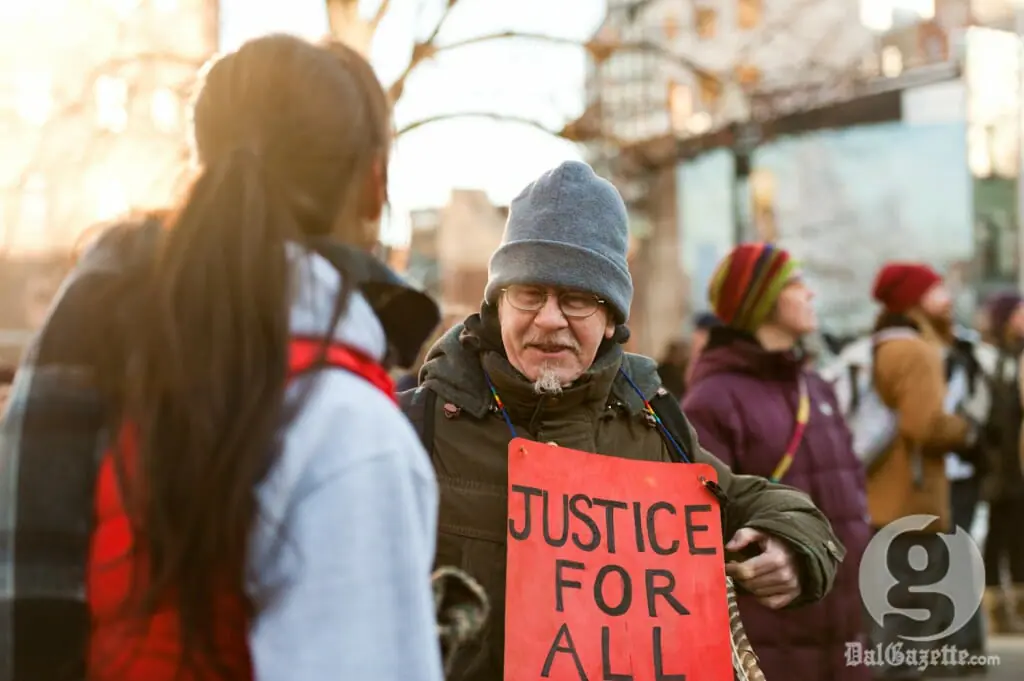
The world has been ripe with activism in the last few years. The Arab Spring, the growth of the Tea Party, Occupy everywhere, anti-pipeline movements, pro-life, pro-choice, election organizing—in 2011 the Times Magazine person of the year was ‘The Activist.’
But what is activism, really?
Bob Huish, who teaches Dalhousie’s Development and Activism course, says that the focus of activism is to overcome a problem through engaging people and powerholders.
“Activism is the governed holding the governors to account, whether it’s governments or bosses or corporations,” he says, “which is essential to democracy.”
So what makes an activist?
Huish says that any person who disagrees with the way things are and conveys that message to people or those in power is an activist.
Brian Crouse, from the Nova Scotia Public Interest Research Group (NSPIRG) says that it’s “not a scary thing to identify as an activist. It just means that you are working in some way to improve the conditions for you and the people in your society.”
So why are we so afraid of the word?
Canadians generally have an admiration for recent activism abroad. Take the Arab Spring for example—many Canadians applauded the activists’ efforts to end corruption. Huish attributes this to the fact that Canadian generally like to see our style of government and law embraced around the world.
However, closer to home, there is a fear of activism. Popular media and governments have demonized students in Quebec battling the latest fee hikes, have labeled environmental activists ‘enemies of Canada,’ and labeled people in favour of alternative transportation ‘bike-riding pinkos.’ After the G20 conference protests in Toronto, kettling at marches in Quebec, and various Occupy beat-downs like the one in Halifax, people associate the word ‘activist’ with masks, aggression, and violence.
This image is a simple misrepresentation of activism, says Huish. Anything that changes or attempts to change the status quo, social norms, or the way things are, is activism. This can be anything from raising awareness about a disease, to getting your university to pull its investments from unethical practices, to going on a hunger strike.
What does this have to do with us?
Students, and more generally young people, have played at the forefront of social movements with many campuses leading the way on rights and freedoms that people enjoy today. Student activists were key ingredients in the anti-apartheid movement in South Africa and the civil rights movement in the Unites States. Young people in Tunisia, Egypt, Libya, Yemen, and other nearby countries expelled their corrupt governments in 2011 through what we know as the ‘Arab Spring.’
Right now in Canada, Indigenous activists are getting our attention with hunger strikes and blockades. Young Conservatives are gearing up for the 2015 elections. Parents are fighting to keep supposed child-abusing teachers out of the classroom. People in poverty are storming landlords’ offices demanding decent living conditions. Students are working to get solar panels on campus buildings. Activism is all around us.
In North America there are many calls for activists to unite around their issues, rather than splinter into pigeonholed interest groups. From Naomi Klein to Ezra Levant, movement leaders are asking activists to work together to achieve their goals.


Recent Comments